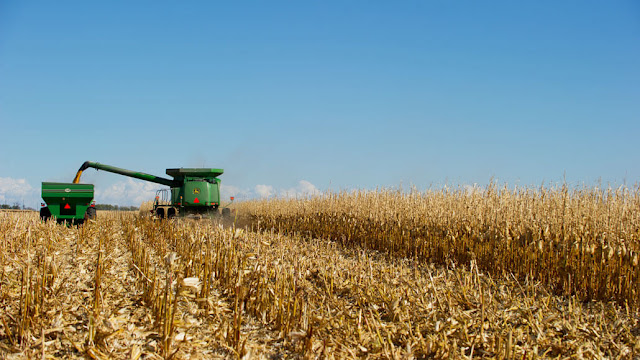The method could be used to tap into underutilized renewable fuel sources.
Corn growers frequently leave stalks, leaves, and spent cobs to rot in the fields after harvesting their crop. Engineers have developed a novel yeast strain that can turn this inedible waste into ethanol, a biofuel. This mostly untapped renewable energy source could help lessen reliance on fossil fuels if the process can be scaled sufficiently.
Previous attempts to turn this fibrous waste, known as maize stover, into fuel were unsuccessful. Corn stover must be broken down before yeasts can do their function, but this process frequently produces by-products that kill yeasts. Researchers have developed a variety of common baker's yeast that can defuse those hazardous by-products and get on with the work of turning sugar into ethanol by modifying a gene in the yeast.
The new yeast was able to produce over 100 grams of ethanol per liter of treated corn stover, which is equal to the normal biofuel production process utilizing corn kernels, according to the researchers, who published their findings in Science Advances on June 25.
Venkatesh Balan, a chemical engineer at the University of Houston who was not involved in the study, said, "They've generated a more hardy yeast." According to him, the novel strain could help biofuel producers harvest materials like maize stover.
The majority of ethanol produced in the United States is generated from corn, the country's most important commodity, and is blended into the majority of gasoline sold at petrol stations. Ethanol from corn is a renewable energy source, but it has drawbacks. Expanding cropland alone to plant corn for biofuel clears natural habitats (SN: 12/21/20). Diverting corn to make ethanol can detract from the food supply, and expanding cropland solely to plant corn for biofuel can detract from the food supply (SN: 12/21/20). Converting inedible maize stover to ethanol could boost biofuel production without requiring greater crop planting.
"Corn won't be able to completely replace petroleum as a fuel raw material," says MIT metabolic engineer Felix Lam. "However, we have a backup plan."
Lam and his colleagues began using Saccharomyces cerevisiae, often known as baker's yeast. Biofuel manufacturers, like sourdough bakers and brewers, already employ yeast: It has the ability to convert maize kernel carbohydrates into ethanol (SN: 9/19/17).
Maize stover, unlike corn kernels, contains sugars that are bonded in lignocellulose, a plant component that yeast cannot break down. Although severe acids can be used to dissolve these sugars, the process produces harmful byproducts known as aldehydes, which can kill the yeast.
However, Lam's team came up with a solution: transform the aldehydes into something yeast can tolerate. The researchers previously knew that altering the chemistry of the yeast's growth environment could improve the yeast's tolerance to alcohol, which can be hazardous at high doses. With this in mind, Lam and colleagues focused on GRE2, a yeast gene that aids in the conversion of aldehydes to alcohol. About 20,000 yeast varieties were created at random, each with a different genetically modified form of GRE2. The researchers then placed the swarm of variations in a flask with harmful aldehydes to examine which yeasts would survive.
Several versions made it through the wringer, but one emerged victorious. The researchers discovered that the modified baker's yeast could create ethanol from treated corn stover virtually as efficiently as corn kernels using this battle-tested version of GRE2. Furthermore, the yeast could produce ethanol from a variety of woody materials, such as wheat straw and switchgrass (SN: 1/14/14). "We have a single strain that can do everything," Lam explains.
According to Balan, this strain eliminates a significant problem in fermenting ethanol from fibrous materials like maize stover. However, "many more improvements will be required to make this technology commercially feasible," he adds, citing logistical issues in harvesting, transporting, and storing huge volumes of maize stover as one example.
"This problem has a lot of moving elements," Lam says. However, he believes that the results of his team could help kick-start a "renewable pipeline" that uses underutilized, sustainable fuel sources. He describes his concept as a challenge to fossil fuels' dominance.
CITATIONS
F.H. Lam et al. Engineered yeast tolerance enables efficient production from toxified lignocellulosic feedstocks. Science Advances. Published online June 25, 2021. doi: 10.1126/sciadv.abf7613.

.jpg)